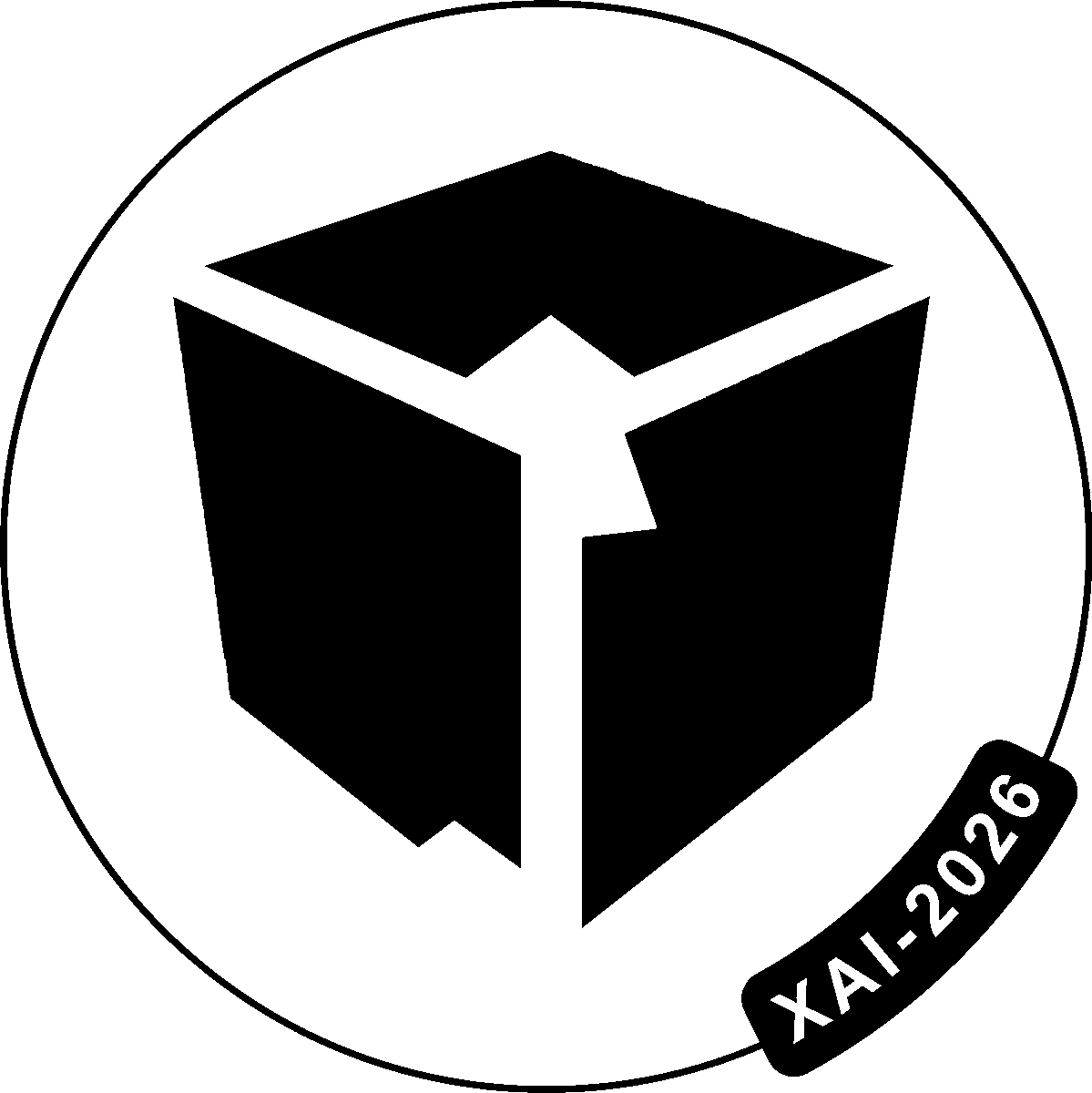4th World Conference on eXplainable Artificial Intelligence
Call for late-breaking results & demos

The conference organisation invites Late-Breaking work and Demo research of innovative XAI-based systems (including research prototypes). These are pieces of research that present innovative ideas, preliminary results, and system prototypes addressing the theory and practice of eXplainable Artificial Intelligence. These are also articles introducing recently started research projects or summarising project results.
Late-Breaking work
We encourage researchers and practitioners to submit late-breaking work. It provides a unique opportunity to share valuable ideas, elicit helpful feedback on early-stage work, and foster discussions and collaborations among colleagues. Late-breaking work is research in progress that must contain original and unpublished accounts of innovative research ideas, preliminary results, industry showcases, and system prototypes addressing eXplainable Artificial Intelligence (XAI) theory and practice. In addition, articles introducing recently started research projects or summarizing project results are welcome.
Authors are required to submit a single PDF containing:
| 1 | A manuscript describing the late-breaking work and the preliminary findings (max 8 pages, including references) -> (required) |
Demonstrations
Demonstrations will showcase research prototypes or commercially available products in a dedicated session. Demo submissions must be based on an implemented and tested XAI-based system that pursues one or more innovative ideas in the conference’s interest areas. Demonstrations are an exciting way to showcase implementations of XAI-based systems and to get valuable feedback from the community. Each demo submission must determine which aspects of the proposed XAI-based system will be demonstrated on-site at the conference.
Authors of demos are required to submit the following information:
| 1 | A manuscript describing the xAI-based system and its technical details and functioning (max 8 pages, including references) -> (required) |
| 2 | A document (pdf) describing how demonstrators will present the demo [for example, on their laptop as a pre-recorded video or via interactive technology. See also below for further details.] (Required) |
Submission and formatting style
Late-breaking results and demonstrations must be submitted by the deadlines and prepared according to the CEURS-Ws.org style. Latex template can be found here. (word version here)
All submissions and reviews will be handled electronically.

Late-breaking results and demos must be submitted using the easy-chair platform here.
Select the track type (Late-breaking work and demos).
Presentation of accepted Late-breaking work and demos
If a late-breaking work or demo is accepted, authors must bring a physical poster in A0 (vertical) format to the conference, which will be displayed in the designated poster stands as planned in the programme.
Demos will have a desk, and authors can bring their computers, screens, or other equipment to demonstrate their work.
Publication and indexing
All the accepted manuscripts related to late-breaking work and demos “shall be submitted to CEUR-WS.org for online publication” in a dedicated free, open-access volume in CEUR Workshop Proceedings. Since CEUR partners with Scopus, these proposals will also be indexed in it.
Note that “shall be submitted to CEUR-WS.org for online publication” means we do not have control over the decision taken by the CEUR-WS committee to approve them, as reported in the publishing guidelines by CEUR-WS.org. However, since the conference organisation strictly adheres to these guidelines, we can be sure that CEUR-WS will accept our request.


*All dates are Anywhere on Earth time (AoE)
Articles (main track & special sessions)
| Easychair submission platform opening from | January, 1st, 2026 |
| Article upload deadline on submission platform (easy-chair)*: | February 1, 2026 |
| Paper bidding for reviewers | February 2-4, 2026 |
| Review submission deadlines for reviewers | February 20, 2026 |
| Notification of acceptance*: | February 22, 2026 |
| Registration (payment) and camera-ready* (upload to easy-chair): | February 28, 2026 |
| Article presentation instructions notification | June, 2026 |
| Publication (Springer CCIS series) | September/October, 2026 |
Late-breaking work & demos
| Easychair submission platform opening from | March 01, 2026 |
| Late-breaking work & demo article upload deadline on submission platform (easy-chair): | March 07, 2026 |
| Notification of acceptance: | March 31, 2026 |
| Registration (payment) & Late-breaking work & demo camera-ready (upload to easy-chair): | April, 10, 2026 |
| Late-breaking work & demo presentation instructions notification | June, 2026 |
| Publication (planned with CEUR-WS.org*) | September/October, 2026 |
Doctoral consortium (DC) proposals
| Easychair submission platform opening from | March 01, 2026 |
| DC Proposal uploads deadline on the submission platform (easy-chair): | March 07, 2026 |
| Notification of acceptance: | March 31, 2026 |
| Registration (payment) | April 10, 2026 |
| DC presentation and meeting instructions notification | June, 2026 |
| Publication (planned with CEUR-WS.org*) | September/October, 2026 |
Special session proposals
| Proposal submission (contact): | November 15, 2025 |
| Notification of acceptance & final instructions | November 31, 2025 |


